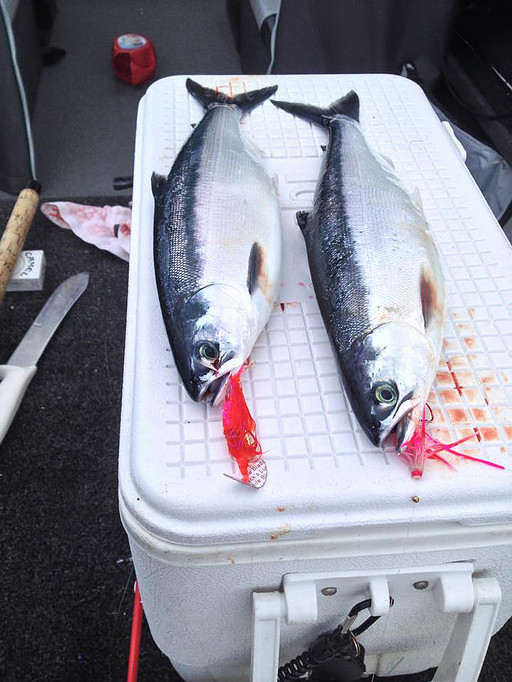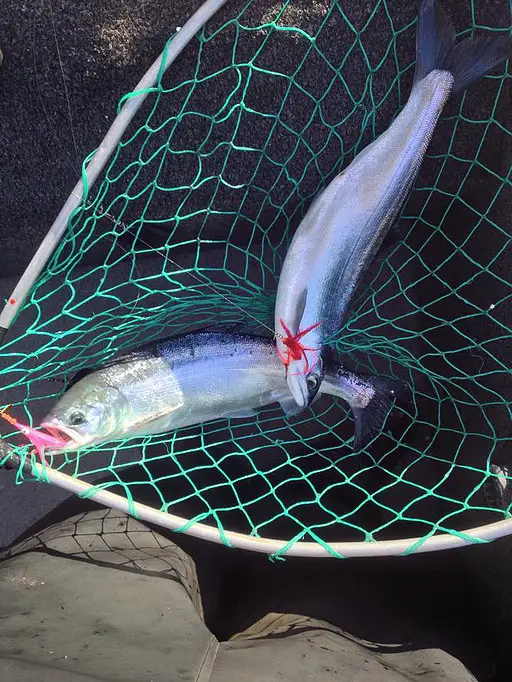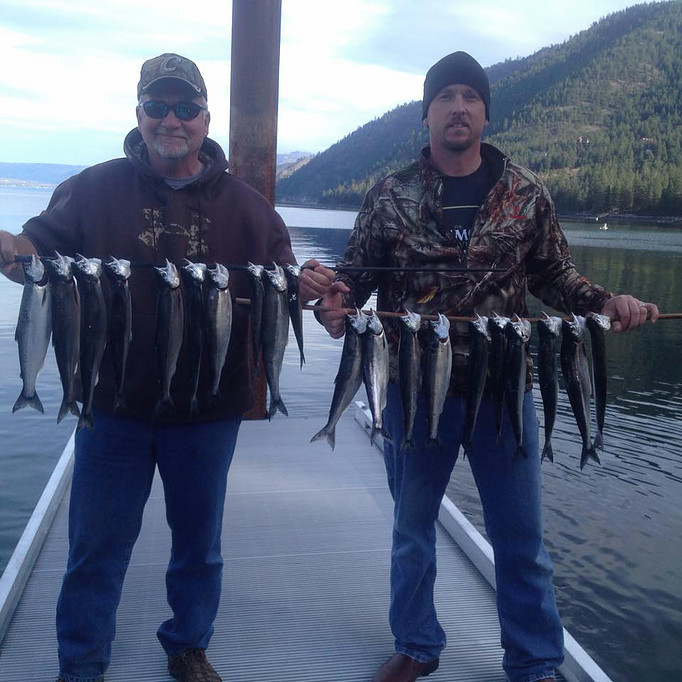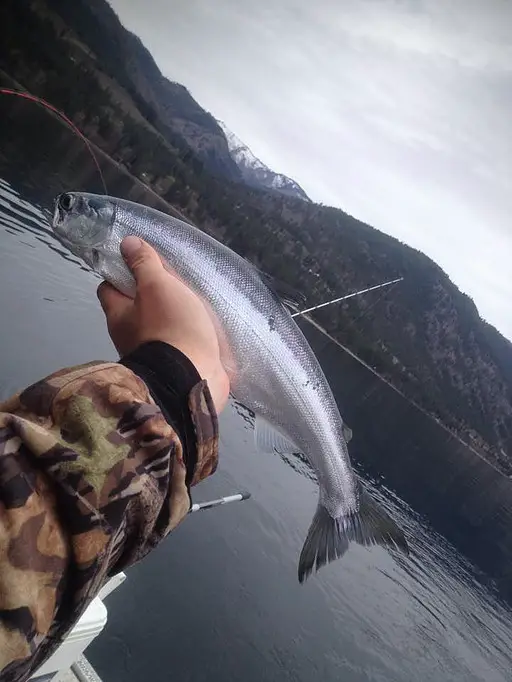Search
Latest Articles
Kokanee Fishing Tips
by Zack McGlothern, March 29, 2016

Organization and Cleanliness- I know I am like many anglers. Way to much fishing gear and its all crammed into one tackle bag/box. Keeping your gear clean and organized will help with clutter. But also will put more fish in the boat. How many times have you found that lucky spinner in the bilge because it didn't get put away? Or your hoochies are stuck together and formed a UV infused glue in your tackle box? With a near constant influx of new gear into my collection, it has to find a spot. For my lures I use every day I install them on pool noodles. Most of these are 16” long and can hold enough gear to cover many of the Koke's moods. I have one for my Spinners, Squids, and Flies. It is easily accessible and when I remove my gear it doesn't get set on the table it gets put back on the roll, ready to fish again. This also allows my gear to dry and helps prevent rust. I also carry several tackle box's for dodgers and gear that hasn't been tested or just simply doesn't have my confidence. All leaders are ready to go and wrapped with a twist tie just in case the need arises and back up soldiers need to hit the battle field. Everything in my boat also has a place. This keeps things off the floor and out of the way. At the end of the fishing day the gear, rods, and boat is washed and everything is put in its proper place for the next day. This allows me to worry about fishing the next day, and not were I put my lucky set up or where my pliers went to. I also have my boat totally ready to go the night before I go fishing. That way I am not forgetting anything at home the next day, like the net.... An organized fishermen is a successful fishermen.
Pre-plan and acquire intel- Sometimes fishing can be intimidating. Especially when fishing new water or new locations. But lucky for many anglers we have the internet which allows us to connect with a network of anglers and information. Before I fish a new spot or new body of water I will dig up any piece of information I can find. I will talk to my buddies and fellow guides who fish that water. Then I will establish a game plan. This will include where I am going to fish, depths, gear, scents, speed, and the times of day or tides that fishing can be productive. Having this already set in your mind will prepare you for a successful day on the water.

Find fish- All to often I hear of anglers have less then great days on the water, all because the fished one spot all day because it has produced fish before. I find myself guilty of this as well. Most successful fishermen are fishing with some kind of high end electronics with sonar. If you are not, get one. This not only allows you see water depths but you can also see your target in the water column. Now whether I am looking for bait to find Chinook, or looking for suspended Kokanee, my eyes are glued to my fish finder. If I fish a spot I know holds fish for 30 minutes and I don't find them. I move. There is no point in trying to catch fish that aren't there. Yes, you may hit a fish once in a while but you are fishing blind if you are not marking fish. And a properly tuned sonar will always mark fish if they are there. Once I do find fish I will refer to my GPS and try to stay on them as long as possible. If you find a school of fish turn around and go back thru them. If they don't wanna bite change gear and try again. Targeting the depth the fish are at is also of the utmost importance. I always try to run my downrigger 5 feet above the fish. Fish where the fish are, catch more fish. Its simple.
Change Gear and Rescent/Rebait- Most fishermen have a pretty extensive collection of fishing tackle. I know I have more then I will ever use in my lifetime. But what good is all that tackle if you drag the same thing around all day with no success? You have that tackle for a reason so use it! Many times while fishing I have found fish and had to change gear multiple times in order to get them to bite. Changing colors, profiles or action. Sometimes even a subtle change can trigger a full on bite. Another error I have often seen (yes I am guilty too) is fishermen dragging around their gear for an hour or so without rebaiting or rescenting. Yes, I know it can be a pain pulling your gear up and setting it back out. And all to often it seems like the downrigger comes up and a school shows up on the sonar. But scent is a very important part of most fisheries. So having fresh scent is very important as well! Changing scent's can also trigger none willing fish to bite as well. Also, Kokanee are very fast. Most can have your bait stripped off your hook before you know they are there and gone. Trolling around without bait is gonna make it hard to catch fish. Change gear and scent for none willing fish, keep your bait and scent fresh. Got it? Good. Next!

Record Success- You just spent a week planning your fishing trip. You had to grind on the water to find fish and get them to react. In the end, fish were caught and a pattern was established. But what good is all that work if you don't remember what you did? Keeping record of what happened and really help with pre-planning trips and continuing success on the water. I keep a fishing journal of every day I fish. I include things such as location, weather, depth, gear, scents, speed, and how productive I was. All of this information leads to more consistent fishing no matter were I am fishing. A good resource to create your own online fishing record is Northwest Fishing Reports. Over several years I have been able to establish patterns on several of the water I fish and this allows me to be a high percentage fishermen (most of the time). Keep a record of what works, and what doesn't, and you will become a better angler.

In short, having a clean and organized boat will allow you to maximize your time on the water. Have a game plan before hitting the water and maybe even a back up plan. Use you sonar to find fish and if you aren't having success, then move! Keep your bait and scent fresh and change gear to trigger unwilling fish to bite. And lastly, keep a record of all of your fishing, good or bad. These fish tips have turned me into a great fishermen and have allowed me to turn my love for the outdoors into a professional career. Following these pointers will also help you put more fish in the box. Good luck out on the water everyone!
Zack, Northwest Sportfishing







